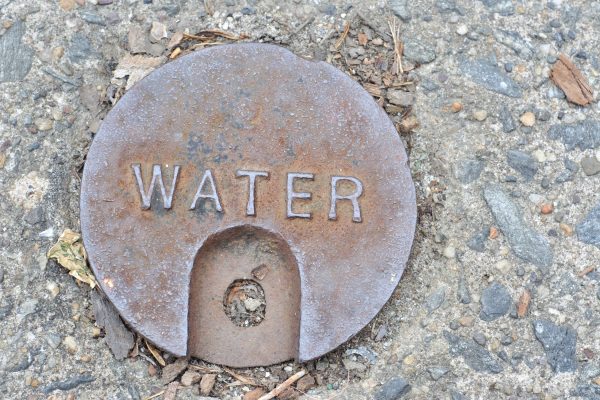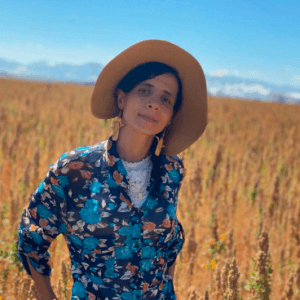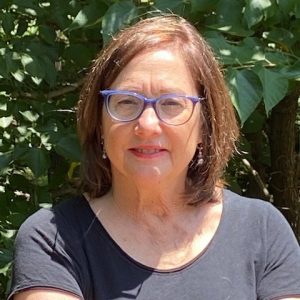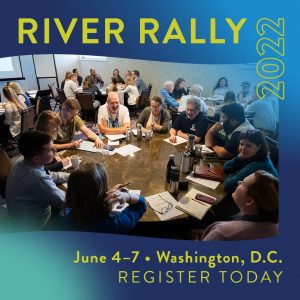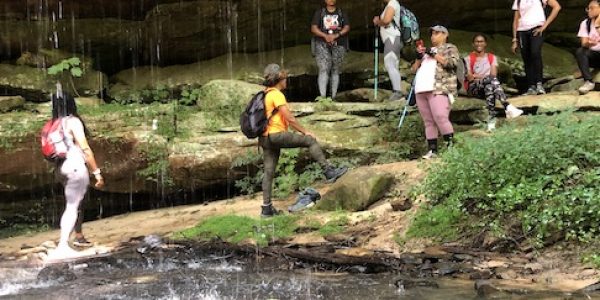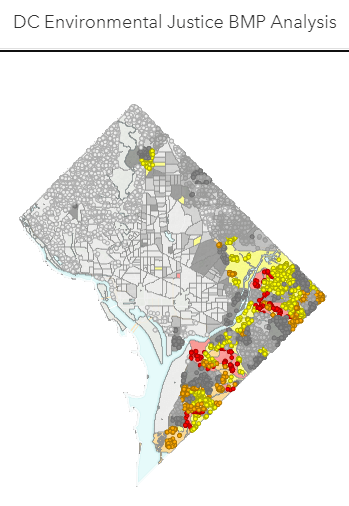River Voices: May 2022

Welcome to the May 2022 edition of River Voices. It’s Drinking Water Week! Learn how we’re supporting the network in navigating new opportunities for equitable water infrastructure funding through SRFs and LIHWAP.
Plus, one month until River Rally 2022, there’s still time to join us in DC: register for Rally today.
The passage of the Infrastructure Investment and Jobs Act last fall was a historic investment in water infrastructure, adding nearly $50 billion for water to the State Revolving Loan Fund Program (SRFs). This investment, and its provisions to support equitable implementation, mean there is a large role for advocates to play in ensuring their states and local water systems are ready to meet the moment. Hear from Sheyda Esnashaari on how we’re supporting water protectors as they navigate this new funding landscape for water infrastructure.
“Water, water there’s so much to say! Really, water is the blood of the earth: water serves to create life and we’re in such a time of so much contention around water… We are water, you live around water; if you don’t understand a lot about what’s going on with water, it’s probably because you’re facing types of disenfranchisements from it.”
“I have devoted my career to clean water for nature and people. My experience at the state and national level allowed me the opportunity to learn from other practitioners and stakeholders and to help establish regulatory and voluntary programs focused on ensuring that our drinking water is safe and accessible and that our rivers and streams are cleaner.”
There’s still time to join almost 400 network leaders and peers from across the country at River Rally 2022 in Washington, DC. Check out the program to see the over 70 learning opportunities we have planned, from inspiring keynotes to thought-provoking workshops that anchor equity to the future of US waters, along with many fun social events!

Low-Income Household Water Assistance Program Updates
LIHWAP, the Low-Income Household Water Assistance Program created and funded through COVID-19 legislation in Dec. 2020 (CAA) and Mar. 2021 (ARPA), is now in full swing, with households across the country accessing assistance in 42 states. The recently released public LIHWAP Data Dashboard summarizing the program’s implementation plans, trends, and challenges is rich with information. Our team breaks it down.
What will you find in the Drinking Water workshop track at River Rally? Expand your understanding of the challenges facing our drinking water from source to tap. Workshops include “Collaborating to Use Clean Water Act Programs to Protect Drinking Water Sources,” “Allocating State Revolving Funds to Enhance Equity,” “Assistance That Saves – Incorporating Water Efficiency Into Affordability Programs,” and more!
River Network and the U.S. Forest Service (USFS) are excited to announce the fourth year of funding for nonprofit organizations. From addressing wildlife/human conflict to restoring forestlands devastated by wildfires to connecting rivers with new communities, the Wild and Scenic Rivers Stewardship Partnership Funding provides nonprofit partners with critical funding for on-the-ground work.
Science Corner: Environmental Justice Mapping Tools
The latest from our science team. Join us at River Rally 2022 for workshops diving deeper on these tools.
With the recent launch of the Climate and Economic Justice Screening Tool (CEJST) by the Council on Environmental Quality (CEQ) to identify communities that are disadvantaged and overburdened by pollution, and ongoing efforts at the state-level to identify the location of environmental justice communities, you may be wondering how these types of mapping tools relate to water data and the work you do related to permitting, climate resiliency, or community engagement.
We’ve created a resource page on federal and state water and equity mapping tools, including a table summarizing similarities and differences between them. Check out our blog post to learn why mapping tools matter, thy indicators for race and class matter, and why different water indicators matter (and why they aren’t as prevalent), and find examples of how to use EJSCREEN, CEJST, and How’s My Waterway?
State Nutrient-Reduction Policies
May 11, 11a PT/2p ET
Join River Network for our next State Policy Showcase! Evan Isaacson, Senior Attorney and Director of Research at the Chesapeake Legal Alliance; Doug Myers, Maryland Senior Scientist at the Chesapeake Bay Foundation; and Cindy Skrukrud, Illinois clean water advocate, will tell us about Nutrient-Reduction state policies in Maryland and Illinois.
Evan and Doug will share Maryland’s policies that are driving nutrient reduction progress, recently passed state legislation, and further progress that is needed. Cindy will share policy recommendations that could move Illinois’ nutrient reduction strategy forward – and progress made.
Environmental Justice State Policies
May 23, 12p PT / 3p ET
Join River Network for this State Policy Showcase! Taina Wagnac, State Legislative Manager, WE ACT for Environmental Justice, and Jairaj Singh, Climate Resilience and Environmental Justice Director, United Oregon, will tell us about environmental justice state policies in New York and Oregon – including the nuts-and-bolts of the policy and what drove action by decision makers.
Taina will share about WE ACT’s current efforts to pass a Cumulative Impacts bill, and Jairaj will discuss Oregon’s legislation on the state’s Environmental Justice Council.
- “Why We’ll Never Be the Same Again (And Why It’s Time to Talk About It)”: A powerful episode from Brene Brown’s podcast, Dare to Lead, she speaks with Scott Sonenshein about the pandemic, the racial reckoning, and work—specifically, what it means for people going to the office for the first time, or staying hybrid, or working from home.
- The Ethical Rainmaker: Members of our team have been revisiting Part 1 and Part 2 of this podcast’s episodes on “The Racist Roots of NonProfits and Philanthropy” as we prepare for a plenary panel on the topic at River Rally 2022.
- The Joy Report: Check out the new podcast dedicated to sharing stories about climate solutions and environmental justice grounded in intersectionality, optimism, and joy. Tune in to hear stories and updates on all things climate, social, and environmental justice explained in a succinct, accessible way by Arielle King (@ariellevking), an environmental justice advocate and attorney passionate about environmental education.


